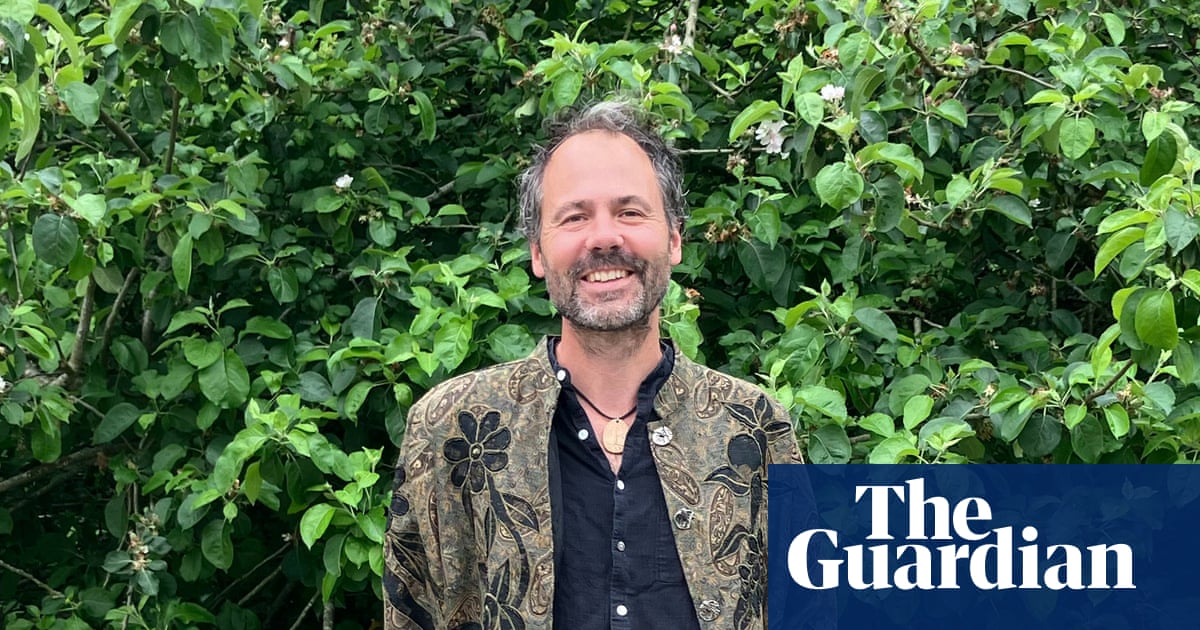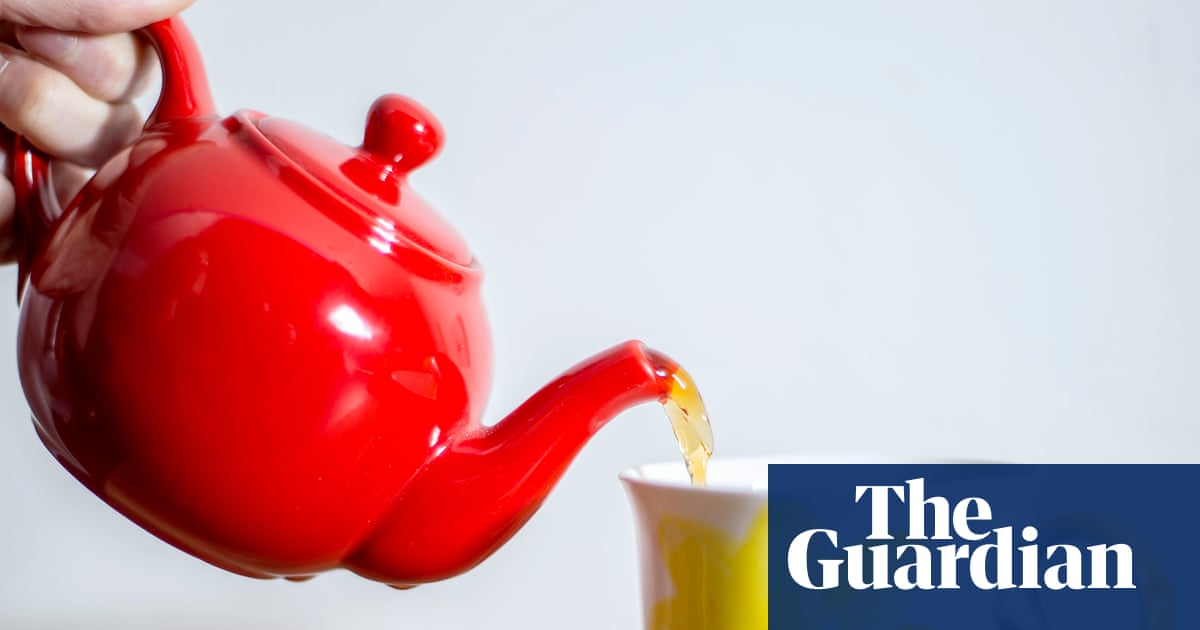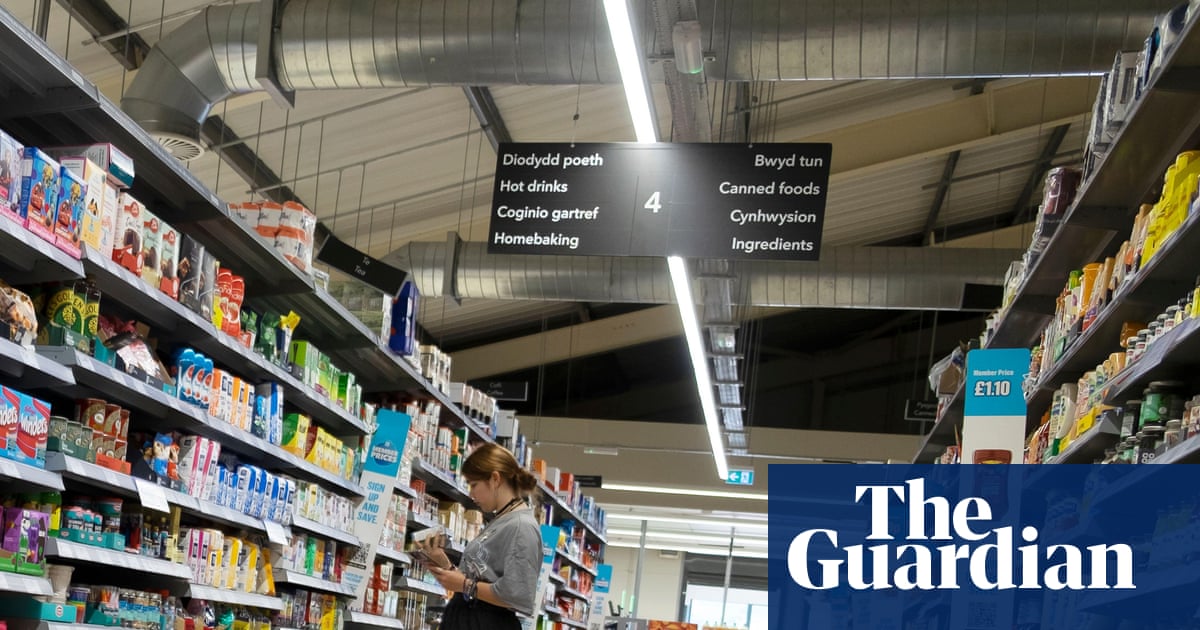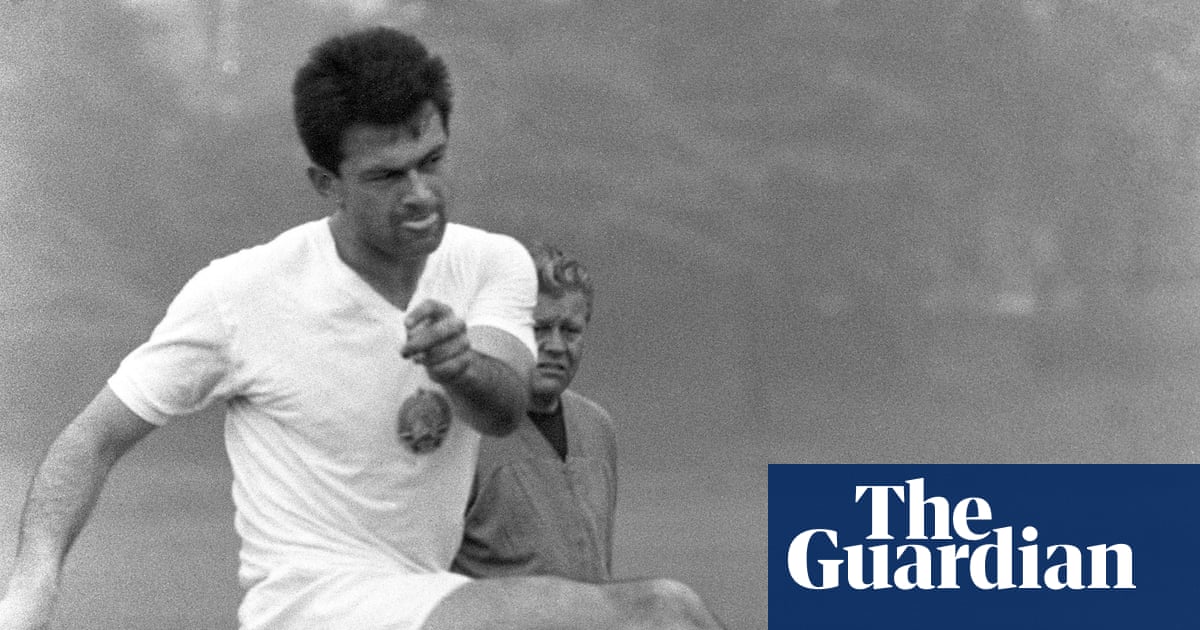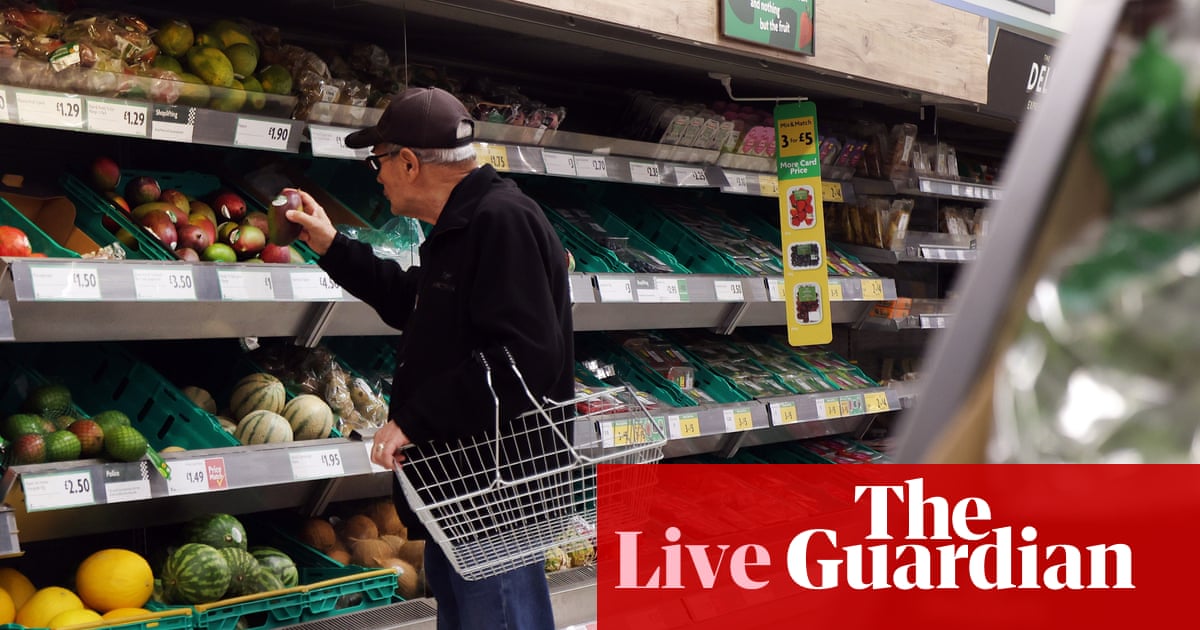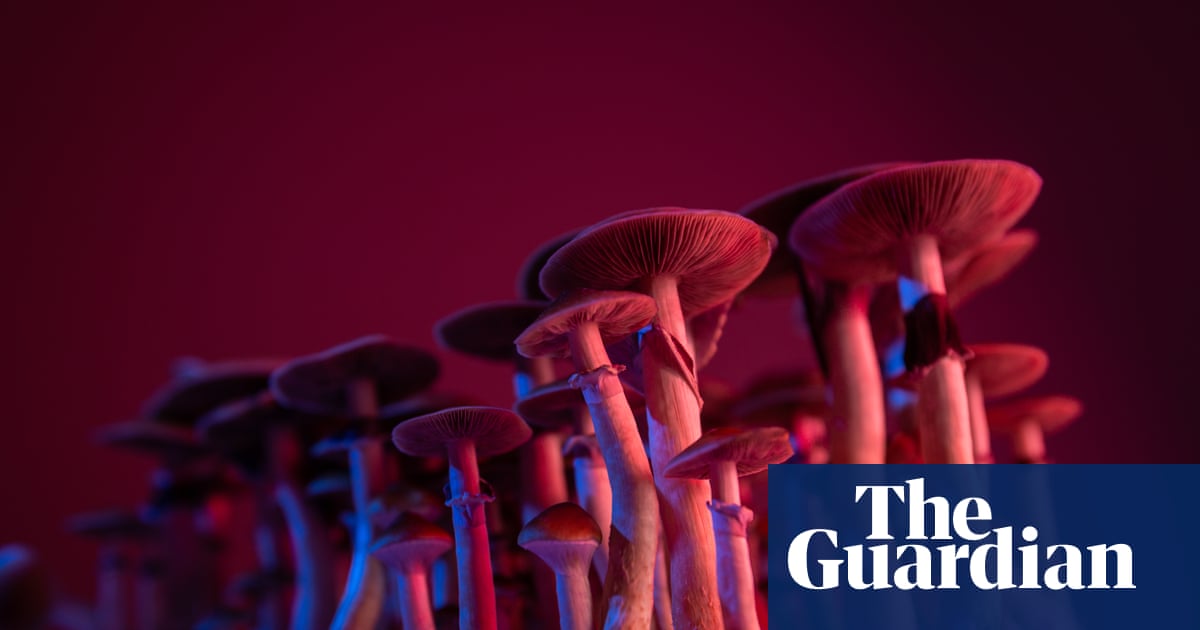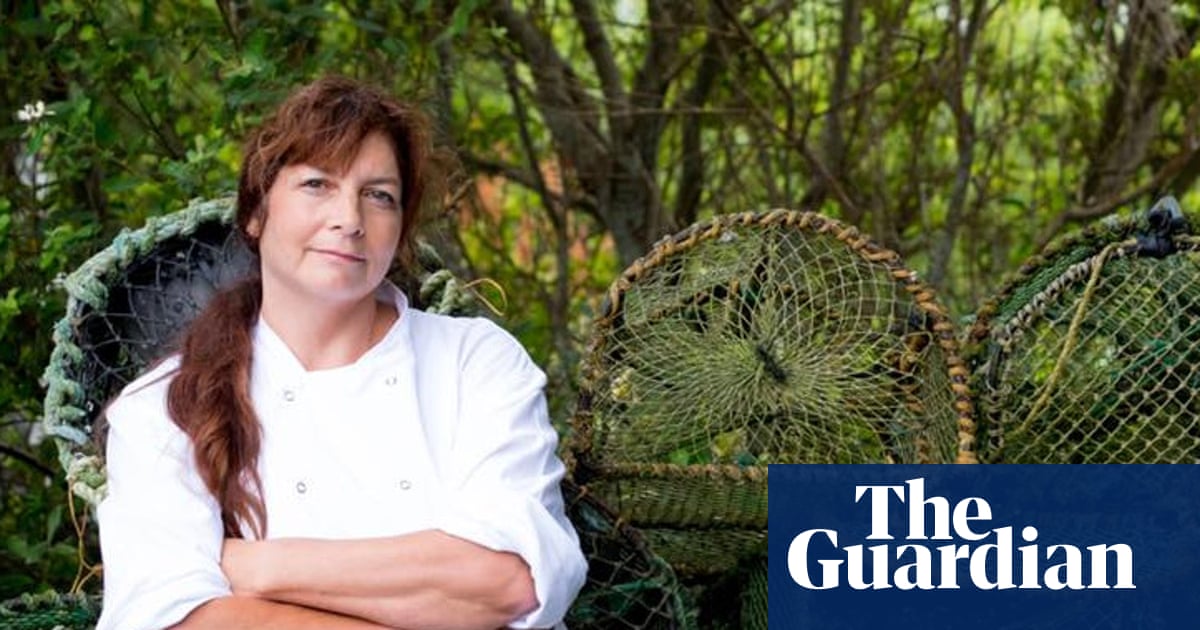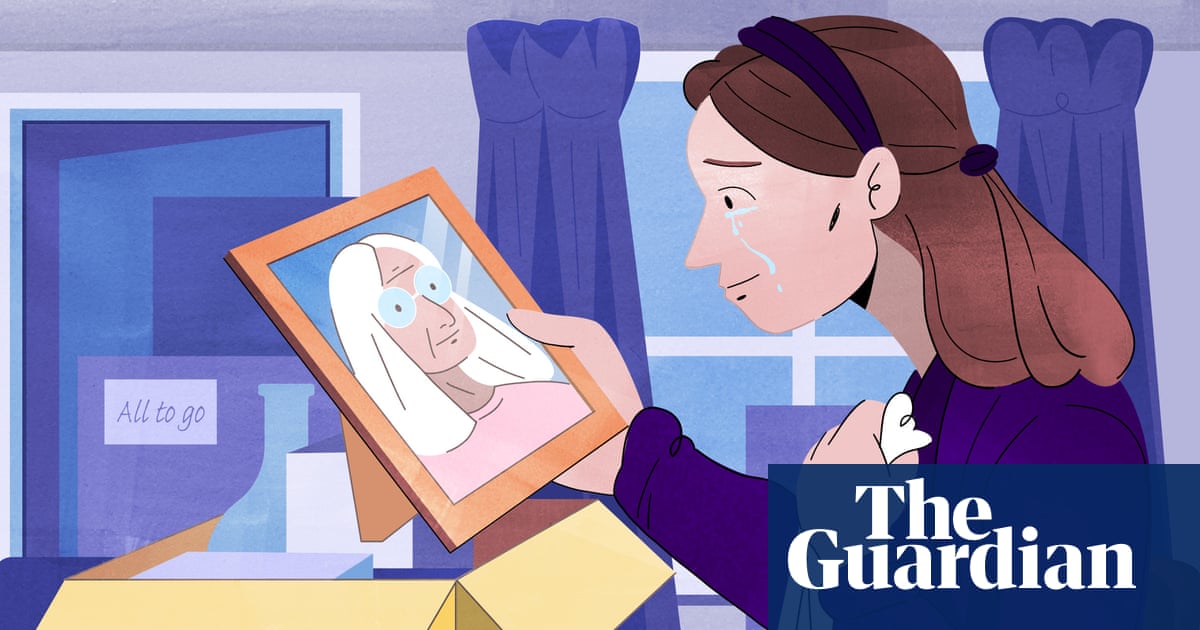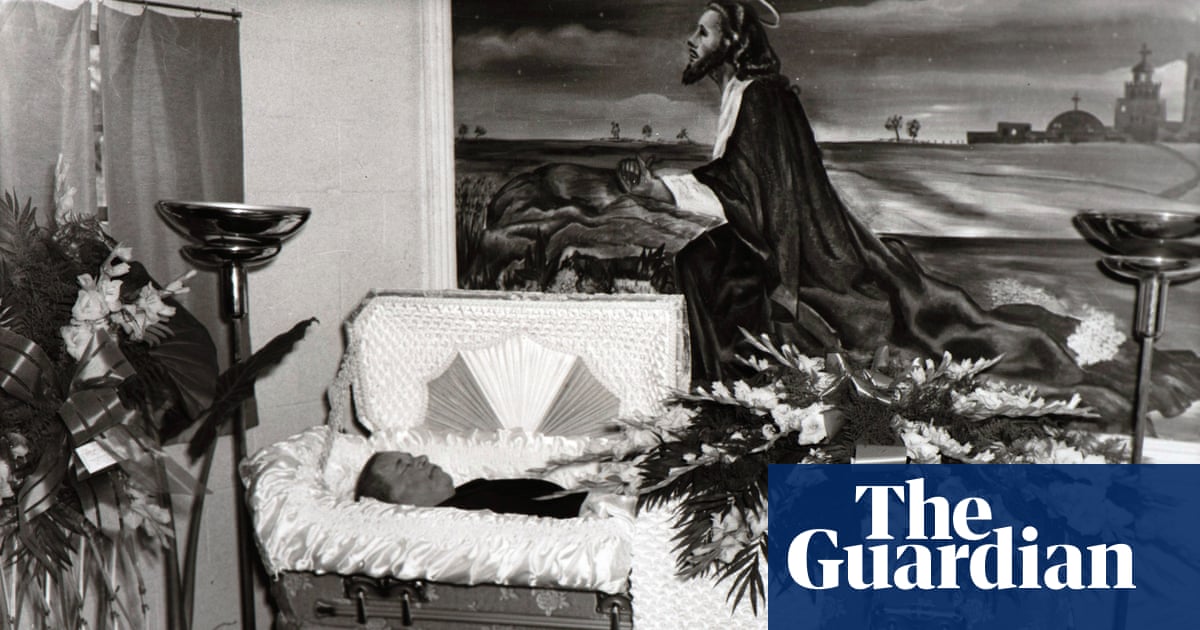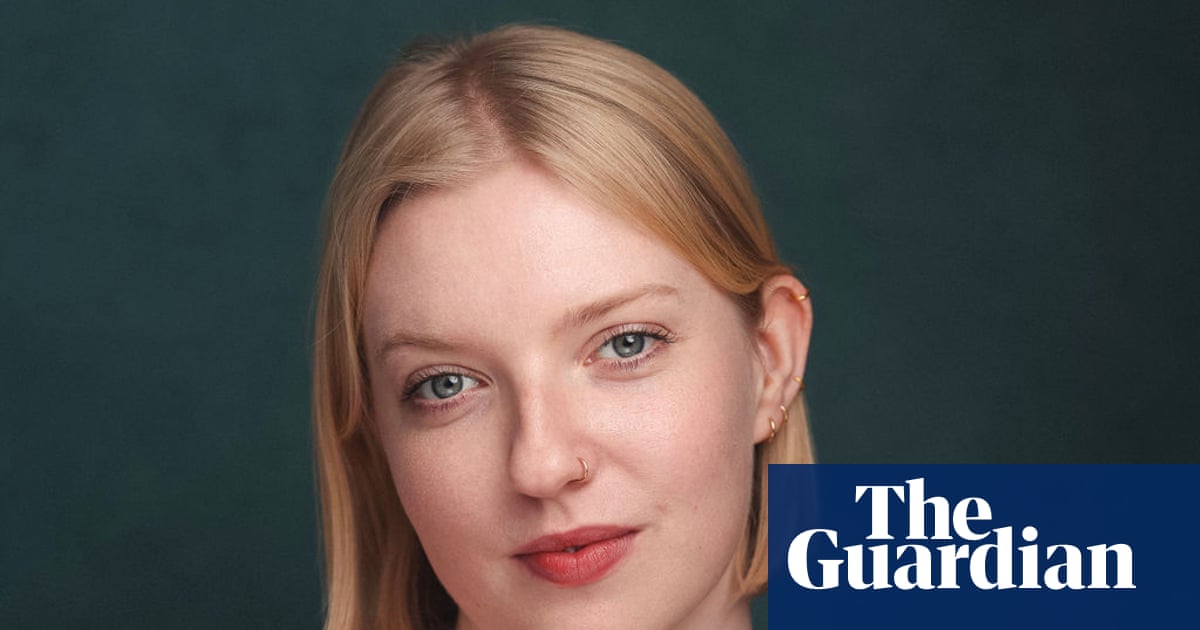Playing stadiums and causing dance crazes, the Irish singer-songwriter is going supernova – and whether opining on trans rights, body shaming or capitalism, she’s more forthright than ever
Ciara Mary-Anne Thompson, or CMAT as she’s professionally known, says she can clearly remember writing the song that changed her life. She was 22 and having moved from Ireland to Manchester, was working in TK Maxx and, at the weekends, as what she’s fond of calling a “sexy shots girl”: “Cash in hand, £8 an hour, 11pm to 3am, teetering up and down the stairs of a nightclub in the building where Joy Division shot the video for Love Will Tear Us Apart with a tray of Jägermeister shots they’d put a bit of dry ice in – burned your skin if you got it on your hands – selling them for three pound each. Terrible job. And just getting absolutely stoned out of my bin all the time, doing whatever drugs anyone would give me for free. I had absolutely no friends.”

An attempt to get her musical career off the ground, “trying to make hyperpop because I loved Charli xcx so much”, had come to nothing. She had just broken up with her “old, weird” boyfriend and was “completely alone in a flat in Chorlton, thinking: ‘What have I done?’ I got really, really, really upset. I kind of looked at myself in the mirror …” She lets out a snort of laughter. “I feel like there’s so many film scenes where people write songs and I’m like, ‘that didn’t fucking happen like that’, but this one did. So I’m crying, grabbed my guitar and wrote I Wanna Be a Cowboy, Baby! in like 20 minutes. And that was that. I thought: ‘I know what I need to do now.’”
A couple of years later, I Wanna Be a Cowboy, Baby! was one of a trio of smart, witty, country-inflected songs that catapulted Thompson to lockdown-era fame in her native Ireland, turning her into what she calls “a big fat pop star” in a matter of months. Her debut album, If My Wife New I’d Be Dead, entered the Irish charts at No 1, its success spreading to the UK, Europe, Australia and the US. Her second, Crazymad, for Me, featured a duet with John Grant and was nominated for an Ivor Novello award and the Mercury prize. Success all happened “purely because I’ve got better at writing songs”, and came surprisingly easily, she says. “Whenever someone’s like, ‘Oh, is it really difficult?’ There’s parts of it that are difficult, but in general, I’m just like ‘This is class, no issue at all. This is great.’”
There’s no doubt that CMAT is a fantastic pop star, and you can see why Sam Fender has her opening for him in a series of stadiums. Arriving at her record company offices direct from a photoshoot, she looks extraordinary. Her clothes are a riot of bright clashing colours, her enormous sunglasses initially hide eyes thick with glittering blue makeup: she manages to exude a certain chaotic glamour while eating a pasty as a late lunch.
She is incredibly forthright on a huge range of topics. She stands up for trans rights – “If you think of social media as like a video game, you rack up the spoils really high when you decide to go for a group of people who are already at risk” – and confronts the culture of wellness and self-improvement or, as she calls it, “the rise-and-grind ethic which is making people insane and making them unable to communicate with other people because they’re so obsessed with focusing on themselves”. Sometimes she’s too forthright for her mum, though: a recent appearance on Adam Buxton’s podcast provoked a dressing down. “She told me it made her cringe: ‘That lovely posh Englishman, so well spoken, and you calling yourself a cunt the whole interview. And you’re not a cunt, you’re lovely.’”
And yet, she concedes there has been a significant downside to her breakthrough. “The kind of headspace that good songs come from is one of extreme emotion, extreme depth of feeling,” she says, “which has an impact on my life. I do live in that really heightened state of emotion all the time. I’m crazy and I do crazy things, and I have crazy relationships with people.” She doesn’t mean crazy as in wild or outrageous, she qualifies. She means crazy as in authentically unwell, or – as she puts it with characteristic bluntness – “mental”.
Now 29, Thompson thinks she has always suffered from auditory hallucinations, but during the making of her third album, “I started actually hallucinating. I was in New York, writing. I didn’t realise for the first two months that was what was happening, but I basically imagined the entire apartment I was staying in was crawling with insects, that I had insects crawling on my skin all the time. I was calling the landlord, letting off bug bombs, I made them throw the couch out because I thought it was covered in fleas. I was itching all the time. I was texting a group chat of friends, sending them pictures of all the bug bites on me: New York’s disgusting, full of insects. And they didn’t exist. I went to the doctor and showed him my bites and he said: ‘Those are stress hives; you’re mental.’” (Possibly not an exact diagnosis.) “I was hallucinating the whole time.”
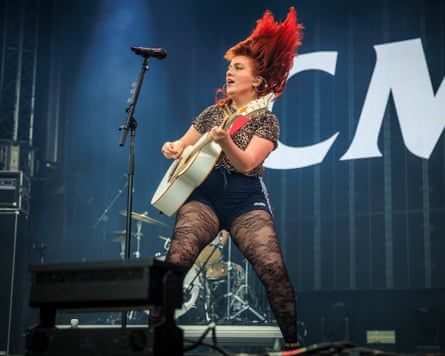
For that reason, she worries that songwriting might not be a sustainable occupation for that reason, or that taking medication might cause the flow of songs to stop. But whatever the pains staked in writing its contents, her new album is superb. It pushes at the boundaries of her previous work’s sound: into synth-heavy territory on the title track, pop soul on Running/Planning and distorted alt-rock on The Jamie Oliver Petrol Station, a song during which the constant sight of the TV chef’s face in Britain’s motorway services seems to bring about an existential collapse in the mid-tour CMAT.
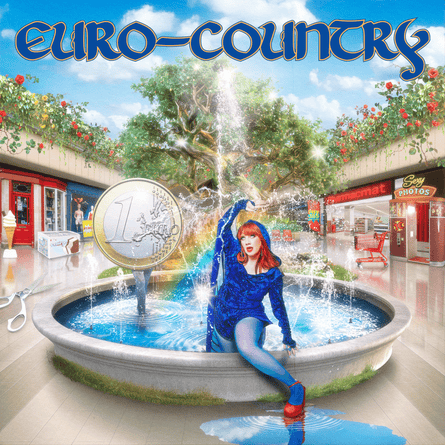
It arrives in a sleeve featuring its title, Euro-Country, written in the kind of Gaelic script beloved of Irish theme pubs, above an exceptionally striking photo based on Jean-Léon Gérôme’s 1896 painting Truth Coming Out of Her Well. It features Thompson emerging from a fountain in the middle of a shopping centre near her home town of Dunboyne. “Blanchardstown shopping centre,” she says. “For the first 10, 11 years of my life, it was like my local village. My sister, who lives in Blanch now, goes to the shopping centre every day. You drive there if you want to see other people and then you drive back home again and live in your house by yourself.”
That’s the reality of much of Irish life, she says. “There’s a kind of space that Ireland is occupying in western media culture right now, a little more fetishised and trendy than it’s ever been. Americans think it’s cute; English people are like, ‘Ooh, I love Guinness and Kneecap and The Banshees of Inisherin, and I’m getting my Irish passport and mmm, I love potato farl.’ People talking about Hozier like he’s a magical, delicate fairy from the bog. It’s a romanticised version of Ireland that doesn’t exist. It’s a really hard place to live, a really hard place to grow up, unless you have money, which we didn’t. So yeah, magical, beautiful, mystical Ireland: it’s a shopping centre, that’s what I grew up with. A shopping centre.”
Ireland’s recent history suffuses Euro-Country, which features vocals in Irish, songs called Billy Byrne from Ballybrack, the Leader of the Pigeon Convoy and Tree Six Foive and a title track that she describes as “a collage, a mood board” about the financial crisis that engulfed the country in 2008. “I was about 12 and it all happened around me, it didn’t really happen to my family directly,” she says. “My dad had a job in computers, we didn’t really have any money, we weren’t affluent, but we were fine. Everybody else on the estate we lived in worked in construction, or in shops, and they all lost their jobs. Everybody became unemployed. Then, in the village I grew up in, there was a year or 18 months where loads of the people I went to school with, their dads started killing themselves because they’d lost everything in the crash.”
Initially, Thompson thought she must have misremembered this. “But I dug deep, did research and the amount of male suicides that happened in Ireland at that time was astronomical. When I hit secondary school, teenage boys started killing themselves as well; that was very common where I grew up. I think it was a kind of chain reaction as a result of the economic downturn. I’m not blaming anyone – no one ever purposely tries to cause that much harm. It’s trying to get all this stuff together and think: ‘Why did all this happen and how do we stop it from happening again?’ I don’t have the answer but I think we all need to keep looking at it and really fucking try to hound ourselves into a position where we’re not just thinking about monetary gain all the time.”

Euro-Country is a noticeably more political album than its predecessors, which tended to focus on relationships and the chaos of her personal life. Thompson says she couldn’t really see anyone else in her position doing it, so decided to take it on. “No one is dealing with capitalism as a force for bad, this really fucking horrible putrefied version of capitalism which has absolutely had a line of coke up its fucking hole since Covid, where the richest people in the world are so much richer than they used to be five years ago,” she says. “Pop stars won’t come out and say that because they’ll be absolutely shot for it, because they’ve all done brand deals: ‘Oh, I love my Dove moisturiser.’”

Thompson was one of a number of artists to pull out of Latitude and other festivals over sponsor Barclays providing financial services to defence companies supplying Israel. She says that as soon as she removed herself from the lineup, an upcoming deal with a designer perfume brand disappeared. “They ghosted me. I lost a lot of money. But who fucking cares? I’m aware of the fact that my career is going to struggle as a result of this stuff, but I also think everyone else in music needs a kick up the hole. Where’s all the fucking artists? Where’s all the fucking hippies?”
Of course, another reason why musicians might feel abashed about mentioning politics is fear of a social media backlash, something Thompson knows all about. Last year, an Instagram video of her performing at BBC Radio 1’s Big Weekend festival attracted so much abuse – largely directed at her weight – that the BBC was forced to disable comments. She laughed it off at the time, suggesting she should be imprisoned for the crime of “having a big fat ass”, but returns to the subject on her current single, Take a Sexy Picture of Me (it has turned into that rarest of things: a song about body shaming that has provoked a TikTok dance trend, with it-girl Julia Fox and Chicken Shop Date host Amelia Dimoldenberg participating).
“Prior to moving over to the UK I would never have thought I was plus size,” she says. “And then I started working with fashion directors in London for photoshoots and started hearing: ‘Wow, you’re so lucky I collect plus-size Mugler because no one else will be able to dress you.’ I thought: what are you talking about? I’m a size 14! I thought everyone was this size! Why are you being so weird? But truth be told, if someone on the internet calls me a big fat ugly bitch, I’m like ‘yeah, whatever’, I don’t fucking care. But I started realising that other people were witnessing it and other girls, young girls, were witnessing this happening to me on a fucking huge scale – what must they think of that? How is it going to make them feel, particularly if they’re bigger than me?”
She brings it back to commerce. “In day-to-day real life, if you think being fat will stop people from ever wanting to have sex with you, let me tell you that is not the case in such an extreme way. I’ve seen the girlies out there doing unbelievably well for themselves, right? But [because] fatness is not commercially viable, it’s not in the realm of commercial attractiveness.” Online, she says, the body image discourse brings out “weak-willed, spineless people who have been brutalised by commercial viability, criticising someone for not falling within the realms of what is easily sellable”.
Thompson says she is aware that the political bent of Euro-Country is a big ask of audiences in 2025, when pop seems to largely function as a means of temporary escape from a terrifying world. “It can be read as incredibly cringe and incredibly earnest and on the nose, right? It’s an embarrassing thing for me to be asking of people. Because it’s not trendy to be earnest any more. I’m aware of that, and …” She laughs again. “Actually I don’t care. I don’t care if I’m putting my foot in it, I don’t care if I’m saying something wrong. We’ve all been too measured, too careful because we’re being witnessed all the time. I think we need more willingness to fail. Even if it’s futile, you’ve got to fucking try. Because it’s fucking depressing otherwise.”

 3 months ago
180
3 months ago
180

